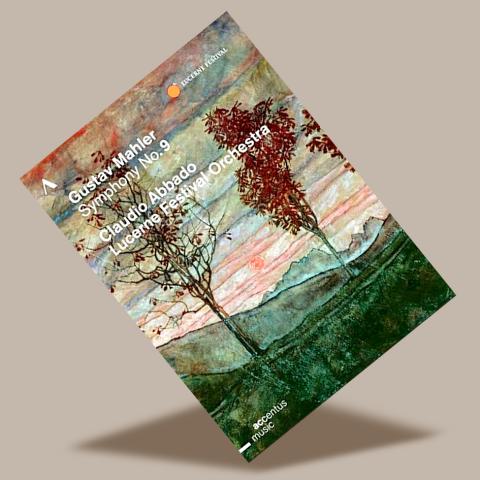It is becoming more and more difficult to obtain review material in this area, so the items selected below are those that this reviewer happened on and enjoyed this year, rather than in any sense the “best of the year” as a whole.
An outstanding DVD from Naxos, issued in March, was Yang Tianwa: Live in Concert at St. Petersburg (reviewed Aug. 28). It contains Tchaikovsky’s and Brahms’s violin concertos — not very original material, you might think, but in the hands of this young Chinese violinist, memorable indeed. She plays them with a tenacity and strength that’s intensely enjoyable and adds an Ysaye movement (see below) as an encore. Also included as a bonus is the young violinist playing Bach’s Partita No: 2 in a studio video recording.
Yang has also recorded the Belgian composer Eugene Ysaye’s six Violin Sonatas (reviewed Aug. 28, Naxos 8.572995). This very fine CD deserves a separate recommendation. In addition, it should be noted that Yang has recorded all of Pablo de Sarasate’s violin music on eight CDs, once again on the Naxos label, though this reviewer has yet to hear them.

The DVD of Ravel’s two short operas, L’Enfant et les Sortileges (The child and the spells) and L’Heure Espagnol (Spanish time) (reviewed Sept. 25, fRA FRA 008) was the winner of the Gramophone magazine’s awards for 2014 in its opera category. Inventive and colorful, with Ravel’s vigorously humorous music, these one-act works mark a welcome break from the usual operatic repertoire. The DVD was shown at the London Proms (the BBC’s series of summer concerts) and received an enthusiastic reception. It clearly pleased the Gramophone critics as well.
New CDs of two of Mozart’s best-loved operas, Le Nozze di Figaro and Cosi fan Tutte, (reviewed May 29 and Dec. 4, Sony 88883709262 and 88765466162 respectively) conducted by Teodor Currrentzis, proved to have many admirers this year, despite the huge competition from earlier recordings. In essence these are youthful performances, as the promotional video available on YouTube clearly shows. By rehearsing and then recording at the Opera House of Perm, in the Russian Urals, the young Greek conductor demonstrated his commitment to musical values rather than commercial ones. Most of the orchestra and soloists are young too, and given that the sound is exceptionally incisive, but the performance style relatively laid-back, these versions of these great works to take notice of. Your critic, incidentally, chose the Figaro for an important Christmas present this year.
Finally, following conductor Claudio Abbado’s death in January, the world’s classical music press was awash with tributes. The consensus was that his finest product among many may have been the DVD of Mahler’s 9th Symphony with the Lucerne Festival Orchestra, dating from 2011 and issued by Accentus [ACC 20214]. His last recording was an audio CD of Mozart’s Piano Concertos Nos: 20 and 25 with Martha Argerich, issued posthumously (Both reviewed Jan. 30). The accompaniment is by the Orchestra Mozart, which Abbado founded.

June 23 to June 29 After capturing the walled city of Hsinchu on June 22, 1895, the Japanese hoped to quickly push south and seize control of Taiwan’s entire west coast — but their advance was stalled for more than a month. Not only did local Hakka fighters continue to cause them headaches, resistance forces even attempted to retake the city three times. “We had planned to occupy Anping (Tainan) and Takao (Kaohsiung) as soon as possible, but ever since we took Hsinchu, nearby bandits proclaiming to be ‘righteous people’ (義民) have been destroying train tracks and electrical cables, and gathering in villages

Swooping low over the banks of a Nile River tributary, an aid flight run by retired American military officers released a stream of food-stuffed sacks over a town emptied by fighting in South Sudan, a country wracked by conflict. Last week’s air drop was the latest in a controversial development — private contracting firms led by former US intelligence officers and military veterans delivering aid to some of the world’s deadliest conflict zones, in operations organized with governments that are combatants in the conflicts. The moves are roiling the global aid community, which warns of a more militarized, politicized and profit-seeking trend

The wide-screen spectacle of Formula One gets a gleaming, rip-roaring workout in Joseph Kosinski’s F1, a fine-tuned machine of a movie that, in its most riveting racing scenes, approaches a kind of high-speed splendor. Kosinski, who last endeavored to put moviegoers in the seat of a fighter jet in Top Gun: Maverick, has moved to the open cockpits of Formula One with much the same affection, if not outright need, for speed. A lot of the same team is back. Jerry Bruckheimer produces. Ehren Kruger, a co-writer on Maverick, takes sole credit here. Hans Zimmer, a co-composer previously, supplies the thumping

Dr. Y. Tony Yang, Associate Dean of Health Policy and Population Science at George Washington University, argued last week in a piece for the Taipei Times about former president Ma Ying-jeou (馬英九) leading a student delegation to the People’s Republic of China (PRC) that, “The real question is not whether Ma’s visit helps or hurts Taiwan — it is why Taiwan lacks a sophisticated, multi-track approach to one of the most complex geopolitical relationships in the world” (“Ma’s Visit, DPP’s Blind Spot,” June 18, page 8). Yang contends that the Democratic Progressive Party (DPP) has a blind spot: “By treating any